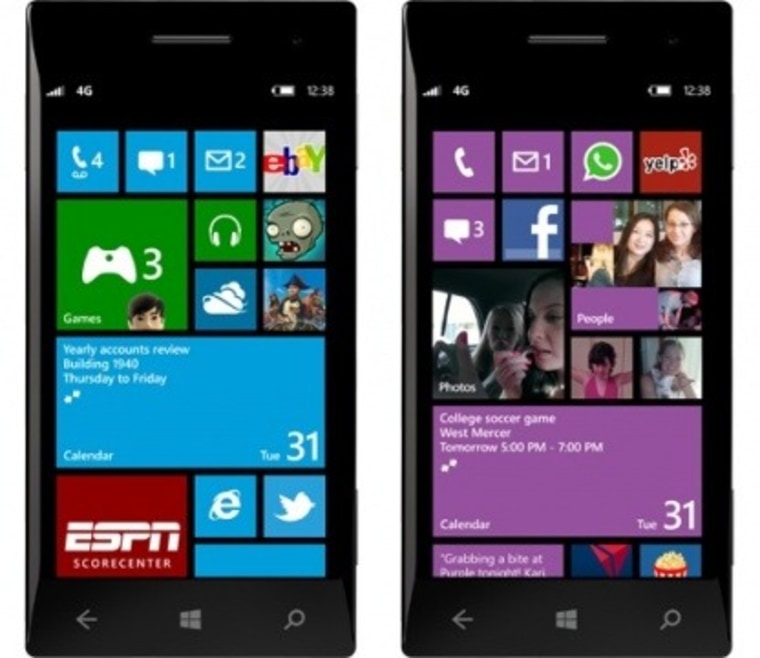A Microsoft legal representative has alleged foul play on the part of Google in withholding critical YouTube components from Windows Phone, relegating users of the mobile operating system to a second-class experience of the world's most popular video site. Google denies it.
Dave Heiner, Microsoft vice president and deputy general counsel, wrote Wednesday on a company blog that Google refuses to let YouTube work properly with Windows Phone, and contends that's because Microsoft offers a competing search engine, Bing.
But is Google really withholding features? A spokesperson for the company issued the following statement to NBC News:
Contrary to Microsoft’s claims, it’s easy for consumers to view YouTube videos on Windows phones. Windows phone users can access all the features of YouTube through our HTML5-based mobile website, including viewing high-quality video streams, finding favorite videos, seeing video ratings, and searching for video categories. In fact, we’ve worked with Microsoft for several years to help build a great YouTube experience on Windows phones.
In other words, the Web browser version is feature-complete and should suffice.
Still, Heiner said having "proper access" to YouTube on Windows Phone is "an important issue because consumers value YouTube access on their phone," and wrote that "just last month we learned from YouTube that senior executives at Google told them not to enable a first-class YouTube experience on Windows Phones."
Google's spokesperson did not answer questions on this statement directly, but did tell NBC News that "it’s not scalable to build and support individually tailored YouTube apps for every mobile platform."
This implies that Windows Phone may be out of luck. Heiner's comments come in the wake of remarks last month by a Google Apps executive who indicated that they would not be working on Windows 8 or Windows Phone apps, citing a lack of users. "We are very careful about where we invest and will go where the users are but they are not on Windows Phone or Windows 8," he told the website V3 at the time.
Perhaps Google's tune will change if Windows Phone gains more market share. But for now its focus on iOS and Android, which together represent nearly 90 percent of phones on the market.
Devin Coldewey is a contributing writer for NBCNews Digital. His personal website is coldewey.cc.
